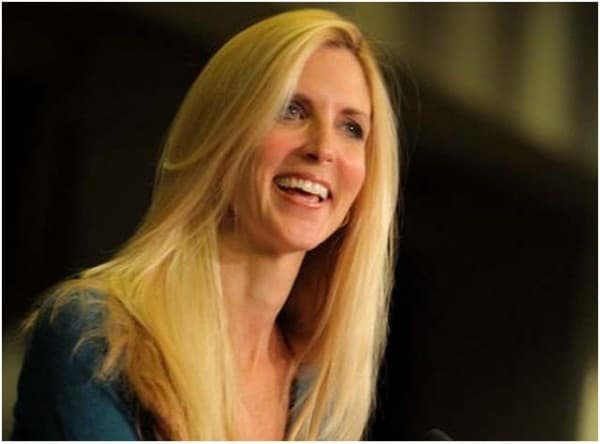Over the past couple of months I have been privileged to write on the topic of interfaith cooperation from an evangelical perspective. During that time we have seen many examples and reasons why this topic is of the utmost importance in our increasingly interconnected world, especially in light of religious violence both here and abroad. It has been both a challenge and a privilege to address this topic.
For my last post in this series, I wanted to take some time to talk about the future of interfaith cooperation and list some of my hopes for this movement and, specifically, for the evangelical Christians who will take part in it.
Interfaith as Peacemaking
This past month we saw the outbreak of violent protests around the world after an anti-Islamic video went viral on YouTube. Shortly afterward, the familiar chorus was heard: “Islam is a violent religion,” “This is why religion is dangerous. It’s irrational,” and so forth. There was plenty of blame to go around.
Now, let’s be real: The attack on the U.S. embassy in Libya was a heinous crime and should be condemned. The violent demonstrations around the world are inexcusable and should be repudiated. And that is not the only story there is to tell.
The truth is that there is another side to the story that was not readily reported on. That story is the story of the countless Muslim leaders who condemned the violence, of the citizens of Benghazi who mourned the U.S. ambassador’s death and the scores of Libyans who protested against violence in their own country. The truth is that religious communities can serve the cause of peacemaking as well as violence. But too often we focus only on the latter.
In his Beatitudes, Jesus said, “Blessed are the peacemakers, for they will be called children of God” (Matthew 5:9). In a world characterized by the “clash of civilizations,” religious conflict seems to be a disturbingly common occurrence.
Too often religion has been used as a weapon against those who are different.
Interfaith work provides a corrective to this. With its emphasis on growing in relationships with people of other faith traditions, sharing stories and working together for the common good, interfaith work provides an alternative story to that put forth by religious extremists and builds relationships across faith lines that can serve as avenues of trust and dialogue when inter-religious conflict rears its head.
As people called to be peacemakers in a violent world, evangelical Christians should be on the front lines of this movement. I am inspired by the religious leaders who have already begun building movements to serve the cause of peace—people like John Morehead of the Evangelical Chapter of the Foundation for Religious Diplomacy and the leaders of Peace Catalyst International.
Building relationships and working together for peace does not mean we have to sacrifice our religious convictions. As such, our posture in interfaith work should be one of building bridges and advocating for peace where there is religious conflict. In doing so, we are able to stay true to our own religious beliefs while also living out this beatitude in regard to our neighbors of other faith backgrounds.
Furthermore, my hope is governments and international peacekeeping organizations would increasingly employ and partner with religious leaders to bring peaceful resolutions to world conflicts, seeing faith as an opportunity and rather than a barrier.
Interfaith in Seminaries
As a seminarian, I am deeply saddened by overwhelming ignorance that my fellow seminary students have in regard to the beliefs and traditions of other faith communities. Too often we study other religions simply to pick apart their theological truth claims and establish a basis for our own. The result is that the average seminarian can graduate with a Masters degree in theology and still never have met, much less had a meaningful relationship with, a person of another faith tradition. World events have shown us just how dangerous it is to live in ignorance of one another.
Seminaries have been charged with forming and training Christian leaders for today’s increasingly interconnected and interrelated world. As such, they should be on the front lines of equipping Christian leaders to meaningfully and deeply engage with communities that are different from their own. Yes, for the sake of spreading the Gospel, but also for the sake of modeling what it means to be an ambassador for Christ in a world that seems to encourage inter-religious conflict. In doing so, they live out Paul’s exhortation in Romans: “If it is possible, as far as it depends on you, live at peace with everyone” (Romans 12:18).
In order to do this, though, they must be trained in far more than apologetics and evangelism. They must be given an accurate picture of other faith communities in order to understand them and see connections between our religious traditions. Again, I am inspired by evangelical thinkers like Gerald McDermott, who is pioneering a way forward in this area.
Interfaith in Higher Education
I remember well my undergraduate years at the University of Illinois, sitting in class and hearing professors address topics of faith and religion. Yet the response I often heard from my classmates, both Christian and those from other faith backgrounds, was, “Wow … they totally missed the mark. That is not at all what I believe!”
Again, too often the secular university treats the study of religion as merely an academic exercise, rather than seeing religion as a vital part of many students’ identity.
If colleges are truly going to prepare students to engage with our diverse world, they need to recognize this gap and evangelicals need to work together with universities to build spaces of dialogue and cooperation that serve both the campus and the surrounding communities.
I think of organizations like InterVarsity Christian Fellowship at the Illinois Institute of Technology, which hosted a interfaith panel discussion in order to encourage greater dialogue among the student body around issues of religious identity.
Or, I think of young leaders like Greg Damhorst, who has worked with the faculty and administration of the University of Illinois to host campus-wide days of interfaith service, often bringing together professors in the Religious Studies department, faith leaders from the surrounding community, and students to serve the common good in Urbana-Champaign.
Interfaith as “Culture Making”
In conclusion, my hope is that evangelical Christians would becoming “culture makers” rather than “culture warriors,” and I see interfaith cooperation as one way in which this can happen. As an evangelical, I see a lot of hope in the interfaith movement because it provides a space where people can be fully faithful to their religious traditions while also working together for the common good.
By engaging in interfaith dialogue and cooperation, I believe I am living out Jesus’ teaching in the Sermon on the Mount: “Blessed are the peacemakers, for they shall be called sons of God” (Matthew 5:9). Peace comes when we actually spend time developing meaningful relationships with those with whom we disagree. In doing so we begin to understand what it means to live side by side in our diverse world.
I believe this is why Jesus said that the second great commandment is, “You shall love your neighbor as yourself” (Matt. 22:39). Increasingly our neighbors are people of other faith traditions and worldviews. Interfaith work provides us with an opportunity to learn how to live this commandment out in practical ways. Interfaith work invites us to be faithful to God and loving to others. May we, as evangelicals, enter into this conversation and come to be known as true ambassadors for Christ. Amen.






















